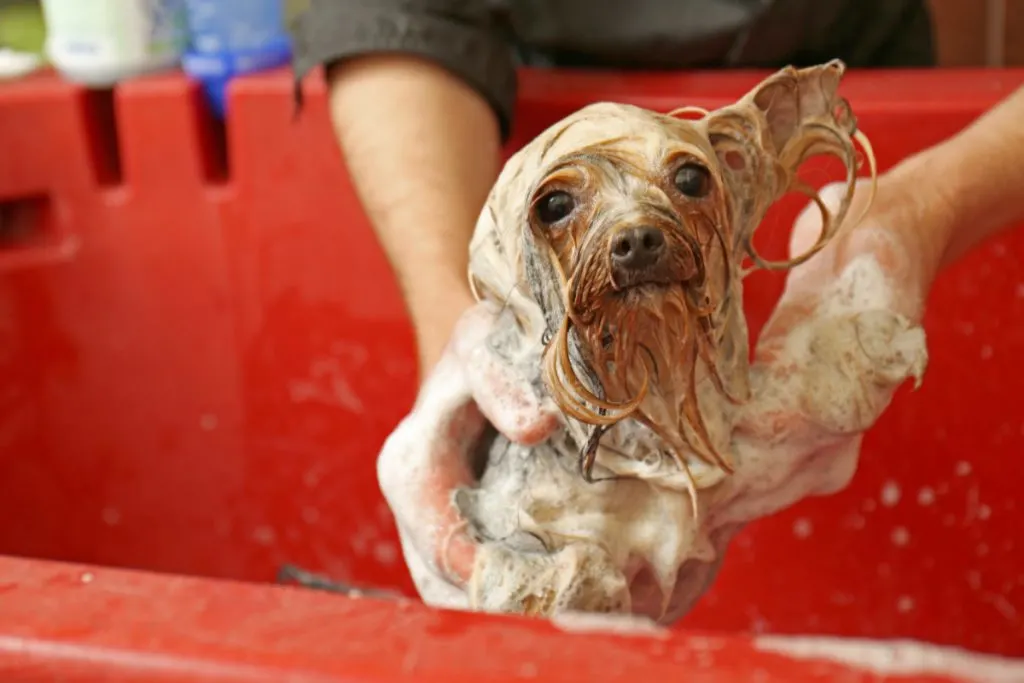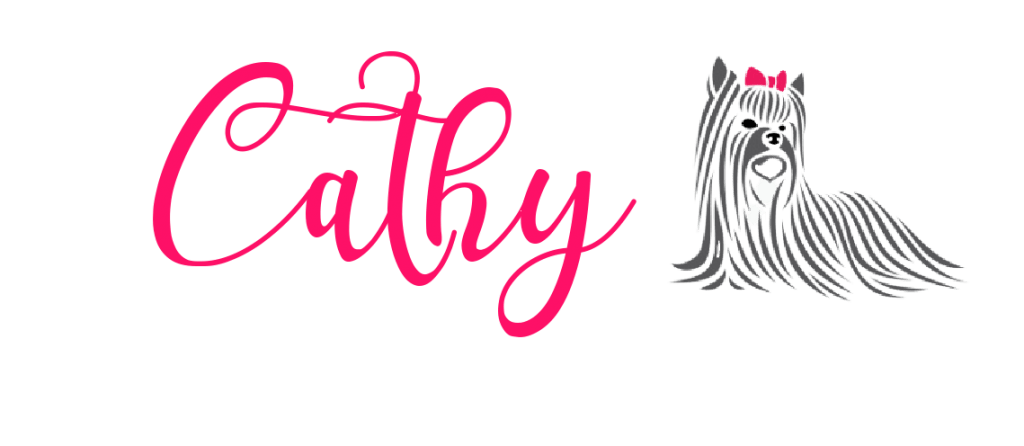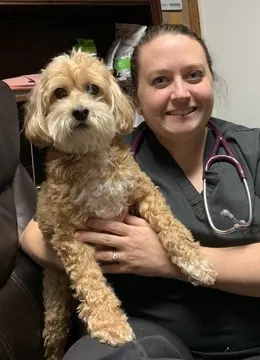Table of Contents
- What Causes Greasy Hair in Yorkies?
- How to Deal with Yorkie’s Greasy Hair
- When to Seek Vet Help
- Diagnostic Tests
- How do I Protect My Yorkie from Having Greasy Hair
- Finally
Despite their fierceness and sassiness, your Yorkie may not be as strong as they appear to be especially when it comes to their skin. Many Yorkie owners are easily able to address itching or flakiness occasionally, but when flakiness leads to oiliness, a different sort of care is required.
Additional care is advised when your Yorkie develops extra greasy coats or skin. But what really causes it? Read on to find out why your Yorkies’ hair is so greasy.
What Causes Greasy Hair in Yorkies?
Although your Yorkie may have a naturally oily coat, it may acquire an extremely greasy coat due to other factors.
For instance, seborrhea, keratinization of the skin, typically causes excessive oil and grease in the coat, manifesting as significant dandruff.
Too much greasiness may also emerge due to various conditions, including allergies, problems with hormones, and parasites.
Let’s get into details.
Seborrhea
Seborrhea manifests itself in two forms. One is dry seborrhea, which is inherited genetically and can cause dehydrated skin on your Yorkie. However, this one is really rare among the Yorkie family.
The other is Seborrhea oleosa or secondary seborrhea is the one that’s likely to attack your pup. It creates oily dog hair and can promote excessive greasiness to your yorkie’s coat.
In most occurrences, seborrhea is a sign of a medical problem than it is a disease. It is triggered by hormonal disturbances, external parasites, and allergies.
Parasite infestation and allergies are frequent in puppies, while hormonal disorders mostly affect mature dogs.
Allergies
Allergies in Yorkies can manifest themselves on your pup’s skin in many ways. They may have inflamed skin, oily skin, and rashes that cause itchiness resulting in infestations and keratinization.
There are so many things that cause allergies to your Yorkie. Some of them include acids and alkalis found in soaps, and carpet detergents. Other irritants include wool, synthetic fibers, pesticides, and fleas.
Inhalant allergies are also possible, particularly when some pollens are at their height. Another typical issue is hypersensitivity to particular components in their food.

Hormonal Disturbances
Irritation and hair loss may be caused by diseases like Cushing’s conditions and thyroid problems, which harm the dermis and promote oily or greasy skin.
Sex hormonal fluctuation may also induce dermatitis, resulting in keratinization and oiliness. Your veterinarian may choose to rule out Cushing’s syndrome or hypothyroidism if your Yorkie is mature and his oiliness is a new concern.
Cushing’s disease is characterized by excessive thirst, thinning of their hair, and a potbellied look. Symptoms of hypothyroidism include extreme sluggishness and weight gain.
Parasites
Parasite bites such as mites may cause skin irritation and edema, especially if your Yorkie has an allergic response to the parasites. In many situations, this will result in a lot of itching, which will cause oily and greasy skin to peel off.
Mosquitos, ticks, and fleas can also cause itchiness and irritation.
How to Deal with Yorkie’s Greasy Hair
Pampering Yorkshire terriers isn’t a one-size-fits-all approach since they don’t all have the same coat.
Some have fine, feathery fur, while others have oily, smooth coats.
If you want to lessen your Yorkie’s greasiness, you should start with maintaining a proper diet and grooming.
In most cases, frequent bathing will usually solve the problem. When shampooing a Yorkie with an oily coat, use a shampoo that includes natural citrus or baking soda, oatmeal, aloe vera, and essential oils like peppermint and eucalyptus. These ingredients are therapeutic and they can actually heal their skin if the damage isn’t severe.

When to Seek Vet Help
If the skin displays signs of seborrhea, such as being excessively oily and greasy or peeling off, a veterinary appointment should be planned to diagnose the etiology of seborrhea.
The veterinarian will perform a physical examination, usually obtaining a specimen of any damaged skin to inspect under a microscope. This procedure is referred to as skin scrape, which will aid in the detection of parasites such as fleas and any infection caused by bacteria and fungi that may have occurred on the injured skin.
If parasites are the source of the skin problem, a combo of therapeutic baths and anti-parasitic medications are used to remove the infection. That being said, some infections may need several treatments and baths for their skin to return to normal.
Diagnostic Tests
Conventional diagnostic procedures such as a complete blood count, urine analysis, and biochemical profile will aid the physician in identifying any blood disorders, hormone imbalances, or signs of sensitivities that are responsible for oily skin.
Any infection caused by bacteria or fungi, as well as a hormone imbalance, will be addressed. If allergies are detected, further diagnostic procedures will be used to discover what your Yorkie is sensitive to.
Additional bathing may be necessary to help minimize the itchiness until the tissue has healed after any underlying diseases have been diagnosed and addressed.
How do I Protect My Yorkie from Having Greasy Hair

Here are a few tips you can follow to ensure your Yorkie’s greasy hair doesn’t reoccur.
Grooming
Special shampoos can assist in soothing and sometimes prevent breakouts in Yorkies with primary seborrhea. Brushing your dog’s hair on a regular basis is also necessary as it promotes proper blood flow and distributes the natural, beneficial oils that keep their coats sleek and nourished.
Diet
Switching to a high nutrient food and introducing Omega-3 supplements to your Yorkies’ diet is incredibly good for their skin. A good diet alone can significantly curb excess oil production.
Regular vet checkups
Consistent veterinarian checkups may aid in the early detection of problems such as Cushing’s disease and other hormonal problems that affect their skin. It also ensures your dog obtains the necessary parasite treatments to avoid infestations.
Always consult your vet before making any changes to your pet’s food, medication, or exercise program.
Finally
Now that you understand the possible causes of an overabundance of greasy hair on your Yorkie, you can take the necessary measures for treatment.
Don’t be afraid to ask for assistance from a professional.
We hope that the advice presented here will help you groom your Yorkie to become more healthy, happy, and less prone to infections.
If you still have questions about your Yorkie’s greasiness, please ask us in the comment section.


Dr. Sara Ochoa
DVM
This article has been fact-checked and approved by Dr. Sara Ochoa DVM. You can read more about her on our About page.

Donna Buhler Gerregano
Tuesday 27th of September 2022
What shampoo do you recommend for yorkie greasy hair?
MomOfZiggy
Tuesday 27th of September 2022
I really like Down and Dirty shampoo from Wild Animal. You can get it from Amazon here.